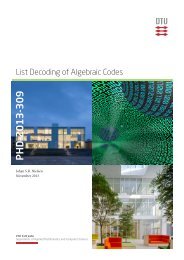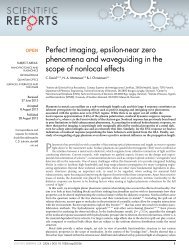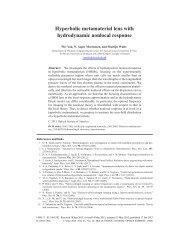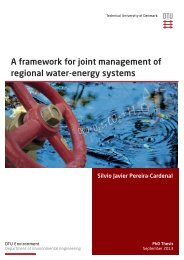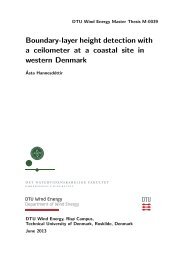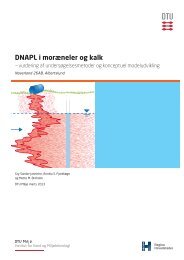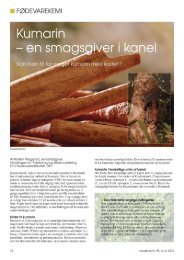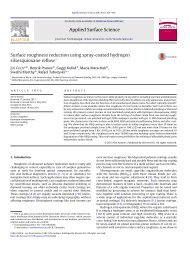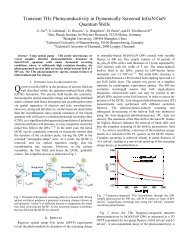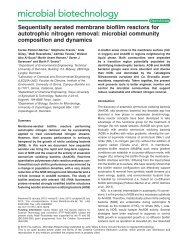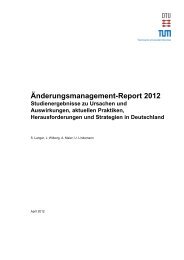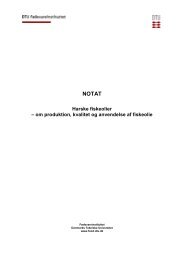PEC12-25 CAPEC-PROCESS Industrial Consortium ... - DTU Orbit
PEC12-25 CAPEC-PROCESS Industrial Consortium ... - DTU Orbit
PEC12-25 CAPEC-PROCESS Industrial Consortium ... - DTU Orbit
Create successful ePaper yourself
Turn your PDF publications into a flip-book with our unique Google optimized e-Paper software.
and retrofit of processes for changes in feed materials while focusing on energy, water and<br />
environmental issues will need special attention.”<br />
6.2 Future Plans<br />
Based on the above, <strong>CAPEC</strong>-<strong>PROCESS</strong> research collaboration will address the following<br />
questions:<br />
• How does one identify the chemicals and their synthesis routes that will help to meet<br />
future economic demands, taking into account, also the questions of sustainability and<br />
protection of the environment (eg., energy conservation and water resources)?<br />
• How does one find their replacements for feedstocks and reagent as well as product and<br />
the processes to manufacture the products? The sources for many of the raw materials<br />
used, especially those derived from oil, gas, and some plants/animals continue to be<br />
depleted and may soon be economically infeasible to use (eg., bio-refinery and green<br />
chemistry).<br />
• How to develop and provide the necessary models, methods and tools through which<br />
the future problems can be addressed (eg., multiscale modelling &<br />
integration/intensification)?<br />
<strong>CAPEC</strong> and <strong>PROCESS</strong> plans to invest heavily in the following areas:<br />
• Product-process modelling: Development of a generic computer aided modelling<br />
framework through which product-process models of different forms and scale can be<br />
generated/created with significantly less time and resources than current practice.<br />
• Product-process design: Use of a multidisciplinary approach because the processproduct<br />
knowledge (including data) will come from different sources and the<br />
performance criteria, factors, etc., will involve other research groups (expertise). The<br />
opportunity for <strong>CAPEC</strong> and <strong>PROCESS</strong> is that it can play the role of the “integrator” or<br />
“glue”.<br />
• Sustainable and greener process development: Develop systematic solution approaches<br />
that combine methods and tools from different sources into problem specific flexible,<br />
reliable and efficient systems.<br />
More specifically, for <strong>CAPEC</strong> and <strong>PROCESS</strong> to meet the challenges for the future, the<br />
following topics will have higher priority:<br />
• computer aided frameworks for generation and use of multi-scale models (further<br />
extension of the predictive-generic property-product–process models)<br />
• methods for design of experiments to collect and analyze data (efficient use of resources<br />
in data collection) and, verification by experiments (through collaboration between<br />
<strong>CAPEC</strong> and <strong>PROCESS</strong>)<br />
• methods & tools for process-product monitoring/control systems (and their design)<br />
• sustainable process-product development (such as, hybrid processes, green chemistry,<br />
process intensification)<br />
• systematic methods for product discovery (further extension of computer aided<br />
molecular and mixture design)<br />
• evaluation of alternative processes for sustainability, retrofit and process modification<br />
62



